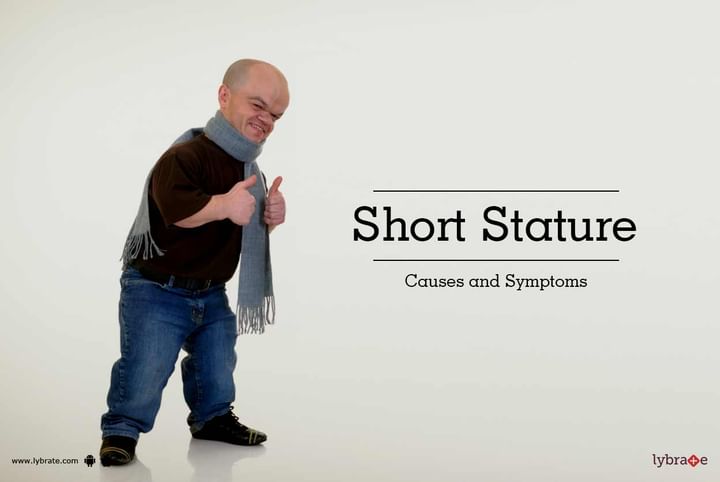Short Stature - Causes and Symptoms
The term short stature describes the height of the person that is significantly below the average height for a person's age, sex, racial group, or family. Growth failure is often confused with short stature. Growth failure that occurs over time eventually results in short stature. By definition, growth failure is a medical condition. However, short stature is often a normal variant.
Short stature may or may not be a sign or symptom caused by a medical condition. Your child's growth must be assessed over a period of time and not just at a single point. Any departure from a prior growth pattern, appropriate for the child's genetic background may signal the appearance of a disease.
Symptoms
Short parents tend to have short children. Children with a family backgroud of short stature does not have any symptoms related to diseases that affect growth. Children with constitutional growth delay do not have any diseases. These children enter puberty later than their peers. However, because they continue to grow for a longer period of time, they catch up to their peers as they reach their adult height, which is normal and comparable to their parents.
Some symptoms may signal a medical condition causing short stature. The following symptoms should be further investigated by your doctor:
- Child has stopped growing or is growing slower than expected (less than 4 cm, or 2 in, each year in the pre-pubertal child of elementary school age)
- Weight loss or gain (more than 5 lbs in a month)
- Poor nutrition/loss of appetite
- Delayed puberty (absent breast development by age 14 or absent menstrual spotting by age 15 for a girl or absent enlargement of the testes by age 14 for a boy); note that the presence or absence of pubic hair is not a reliable sign of pubertal development
What Causes Short Stature?
The three major reasons for short stature are constitutional growth delay, genetics and disease.
Constitutional Growth Delay: Some children simply develop later than others. These children are often referred to as 'late bloomers'. These kids are small for their age and often enter puberty later. However, they'll continue to grow after their friends have stopped. They usually catch up by adulthood.
Genetics: If one or both parents are short, there's a strong possibility that their child will also be short. If there are no underlying medical reasons why either parent is short, their child's short stature may be perfectly healthy.
Disease: A number of diseases may cause unusually short stature. These diseases fall into several categories:
- Endocrine diseases affect hormone production and often height. These include growth hormone deficiency (GHD), hypothyroidism, or low thyroid hormone levels, and Cushing's disease.
- Chronic diseases can also decrease height through their effects on overall health. Examples of chronic disease are heart disease, asthma, inflammatory bowel disease, diabetes, kidney problems, sickle cell anemia, and juvenile rheumatoid arthritis.
- Genetic conditions that affect height include Down syndrome, Turner syndrome, and Williams syndrome.
- Bone and skeletal diseases, such as rickets or achondroplasia, may change stature through their effects on bone growth.
Problems during pregnancy can affect the height of a child. Malnutrition can also lead to short stature.



+1.svg)
